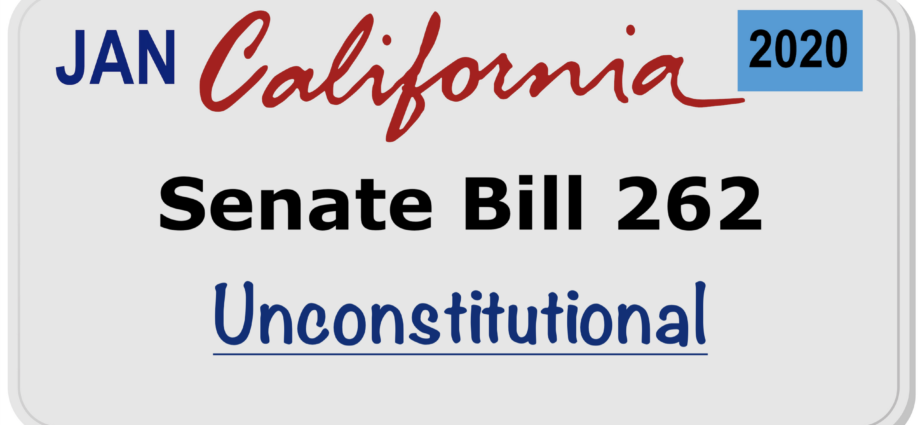Senate Bill 262, the Latest Bail Reform Legislation, Is Clearly Unconstitutional
The California Senate's power has increased so dramatically they now are able to usurp powers belonging to other branches of government without as much as an objection. We get it. If you cross the California legislature, you pay the price and get a beat down. It’s no wonder the Chief Justice doesn’t want to simply pick up the phone and let the good Senator's know, “Listen, Senators, this law is unconstitutional.”
During the pandemic, the California Judicial Council issued a statewide emergency order setting a statewide bail schedule in California to $0.00 for most misdemeanors and many felony offenses. The measure was intended to curb the spread of COVID-19 in jails…regardless of the negative impact on public safety or the data to justify the Order.
The results of zero bail during the pandemic were predictable.
A Modesto man, released on the zero bail order, was later arrested in connection to the murder of another man. In Los Angeles, Eric Medina was released under a zero bail order only to be arrested later four times in three weeks on suspicion of grand theft auto.
Here, Senate Bill 262, the so-called zero bail law, doesn’t just set a temporary schedule, a power that the legislature likely doesn’t have in the first place, it actually sets bail and judges have no discretion under the bill to depart. The bail is zero in some crimes, and the bail is whatever judges set it at if it is not on the list. Simply put, the legislature does not have the power to set bail. Period.
The power to set bail is an inherent judicial power. The California Supreme Court, during the pandemic, held that the California Judicial Council could not set a bail schedule that was binding on judges. In other words, they only had temporarily, as a result of a global pandemic, the power to set a bail schedule which would only be binding until that person got in front of a judge. Then it was meaningless.
In Ayala v. Superior Court of San Diego, an opinion issued April 29, 2020, the 4th District Court of Appeals ruled that the pandemic statewide emergency bail schedule is just that—a bail schedule that pre-sets bails until defendants can be seen by judges in open court. In other words, it functions just like the countywide bail schedule that Courts are required to adopt in the absence of the statewide emergency bail schedule.
Said the Court: “The history and language of the rule show that the Judicial Council intended to adopt a statewide bail schedule, which like countywide bail schedules sets the presumptive bail amount for the covered offenses and violations. The Judicial Council did not intend to suspend the array of statutes governing bail, as well as the superior court's inherent authority, which allow the court to depart from the scheduled bail amount or impose bail conditions in individual cases under appropriate circumstances.” In other words, setting a schedule is not akin to setting bail, according to the Court: “The rule, after all, does not simply mandate zero bail for the covered offenses. It establishes a statewide bail schedule to be applied by trial courts.”
So, if the Judicial Council were to “mandate zero bail for the covered offenses” during a global pandemic it would have been unconstitutional. With Senate Bill 262, the Senate thinks the legislature can do the same thing without a pandemic and despite the voters double-digit rejection of eliminating bail with Proposition 25 during the last general election. Further, the sponsors of the legislation directly used the pandemic zero bail schedule to construct the list of covered offenses in SB 262, in effect directly doing what the Court of Appeals said they don’t have the power to do.
But hey, why let the constitution get in the way of good reform. After all, it’s just the law.



Facebook Comments